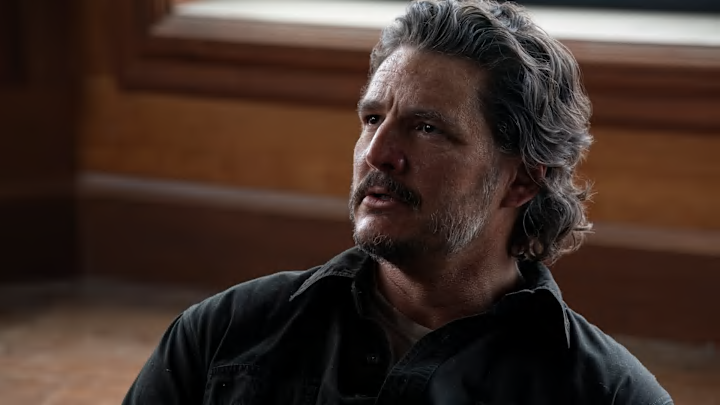In the cold opening of The Last of Us season 2, episode 5, viewers see a high-ranking officer in the Washington Liberation Front (or WLF) named Elise Park. A sergeant, Park is smoking a cigarette and seems distraught as another high-ranking officer named Hanrahan (played by Alanna Ubach) walks in. Hanrahan questions why she locked a bunch of soldiers in their hospital basement. They have a war with the Seraphites coming, and the WLFs need all the help they can get. This leads to how the infected have evolved to using spores to create more of their kind.
Sgt. Park says that the leading officer had radioed in that there was cordyceps in the walls and floor on the basement levels B-1 and B-2. That means they’ll face some infected people, but nothing they can’t handle. The next transmission from B-3 was different. He said the person struggled to breathe and speak, saying, “It’s in the air. Seal us in.” After hearing that, Sgt. Park and her crew locked the only access into the B-1 through B-3. The part that should shock people is that the person talking to Sgt. Park over the radio was her son.
No matter where you are in season 2 of HBO’s The Last of Us or the second video game, it all comes back to decisions. The biggest of them is Joel saving Ellie, which took place in the season 1 finale of the TV series. You can debate whether or not he made the right choice, but the reality is that he chose Ellie over the safety of others. Does this mean that Abby’s father and the rest of the Fireflies could have created and distributed a vaccine that saved the world? We’ll never know because Joel killed the only people who could have helped.
During The Last of Us season 2 Official Podcast, showrunner Craig Mazin perfectly explains why the decision Sgt. Park had to make was similar to Joel’s, and that she chose the lives of others over her son. "Do I sacrifice my child to save everybody else, or do I put my child first on the off chance that maybe he'll be okay, and put everybody else at risk? And here, we see a mother making a very different decision."
"In the end, what we’re trying to do is invite the audience to feel, at least in small part, what this woman must have felt, and part of the way is to shock them. "Craig Mazin
I would love to say that I know what I would do if I were in Joel or Sgt. Park’s position. It’s easy to guess your decision on the outside looking in. However, being there and having to deal with the circumstances versus thinking about it are two different things.
Situations like this have three options. There’s fight, flight, or freeze. You never know which one you’ll do until you’re faced with the decision. Even if you’ve been in something similar, you change as time goes on, and your emotions will differ in the moment. What was once an easy choice has now turned into something difficult. What was once fight is now freeze or flee.

"Moral questions as hypotheses are safe to ponder. When you have the information, and the information tells you there is no moral victory here, none, but a choice must be made, that’s where the hard stuff happens."Craig Mazin
Craig Mazin beautifully summed up what it's like making tough decisions when the podcast discussed Dina helping Ellie: "We like to think we can do things in circumstances. We like to think we would have certain feelings. We like to think that. But then, circumstances have a way of crashing in and making things actually quite difficult."
I won’t say if the respective conclusions that Joel and Sgt. Park came to were right or wrong. They were put in impossible scenarios and made a decision based on who they are as people. Nevertheless, both of them have one thing in common. They’ll have to live with the consequences. In Joel’s case, they killed him.
